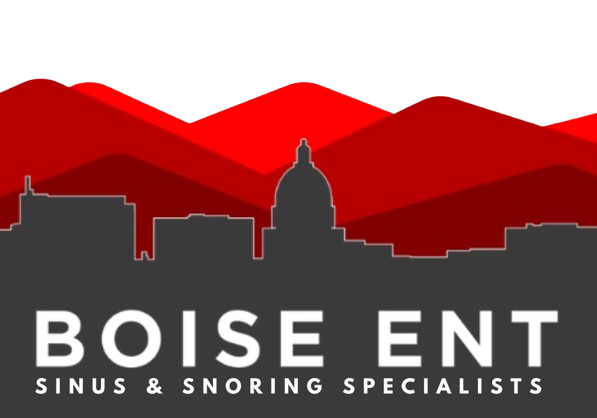We all know the misery of sinus pressure, a stuffy nose, or post-nasal drip. But…

Resolve the Problem of Your Nasal Obstruction
Sinus Specalisit | Boise ENT Sinus & Snoring Specialists
Nasal obstructions occur when air can’t flow freely in and out of your nose. Obstructions can happen at any age, although they tend to be more common as you grow older. Dr. Don Beasley, your Boise, ID ear, nose and throat doctor, shares some information about nasal obstructions.
Temporary nasal obstructions
If you’ve ever had a stuffed up nose due to sinusitis or allergies, you’ve experienced a temporary nasal obstruction. Once you treated your sinus problems or allergies, your symptoms probably improved and it was much easier to breathe. Other causes of a temporary nasal obstruction include overusing nasal sprays or taking birth control medication.
Permanent nasal obstructions
Some nasal obstructions don’t clear up on their own. They include:
Nasal Polyps: These growths form in the lining of your nose or sinuses. Large polyps can make breathing difficult and even affect your sense of taste and smell. If you have nasal polyps, you may suffer from a range of symptoms, including constant nasal congestion, snoring, headaches, runny nose and chronic sinus infections.
Deviated Septum: The septum is the thin wall of cartilage and bone that divides your nose in half. In some cases, the septum is crooked or off-center, which makes breathing more difficult. A deviated septum is more common than you may think. In fact, few of us have picture perfect septums, but as long as the deviation doesn’t affect your ability to breathe, nothing needs to be done to correct it.
Turbinate Problems: Turbinates are spongy bones that extend into the nasal cavity. They direct air flow in your nose and help humidify and filter the air you inhale. The turbinates are covered by mucous membranes that swell due to allergies, infections or exposure to irritants. In some cases, the swelling can become chronic and interfere with your ability to breathe, particularly at night.
You might also be suffering from a nasal valve collapse which causes the feeling of an obstructed nasal passage.
How can an ear, nose and throat doctor help?
Your Boise doctor can offer a variety of treatments for temporary and permanent nasal obstructions. Prescription medications can help reduce allergy symptoms and clear up infections. If your nasal obstruction is caused by turbinates or a deviated septum, and your problem is severe, your doctor may recommend surgery.
Are you worried that you may have a nasal obstruction? Call Dr. Don Beasley, your Boise, ID ear, nose and throat doctor at (208) 229-2368 or schedule an appointment today. Treat your nasal obstruction and breathe easier!



